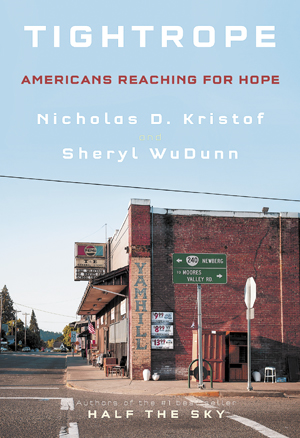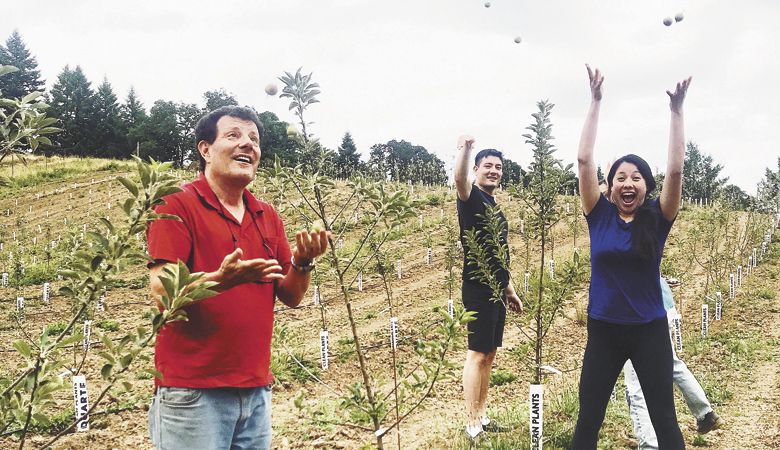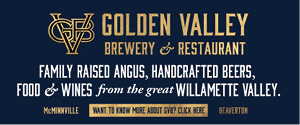Q&A: Nicholas Kristof
NYT columnist talks vines, cider, new book
Nicholas Kristof, a world-renowned journalist and political commentator, was raised on a sheep and cherry farm near Yamhill. After the company leasing the family land stopped buying the cherries, the two-time Pulitzer Prize winner and his wife, Sheryl WuDunn, also a Pulitzer winner, made plans to plant a portion of the 73-acre site with cider apples and grapevines. The couple found inspiration for the job-creating agricultural venture while researching their just-released book, “Tightrope: Americans Reaching for Hope” (Jan. 14, 2020). It explores the current crisis of the working class in areas across the country, including Yamhill County. For Kristof’s latest commentaries, visit www.nytimes.com/column/nicholas-kristof or subscribe to his email newsletter at www.nytimes.com/kristofemail.
Q: Why plant both cider apples and wine grapes? Which varieties of each have you selected?
NK: We were replacing a cherry orchard, which we loved, and fruit orchards have been part of our farm’s history since it was homesteaded in the 1930s. My wife, Sheryl, is allergic to filberts, and every other Oregon farmer is growing filberts anyway, so we were looking for something else — and someone suggested cider apples. We liked the idea that it’s a chance to add value, and we’d love for Yamhill to be known for great cider as well as great wine.

I remember in the early 1970s when a few people were growing wine grapes in Yamhill County, and we all scoffed and thought they were crazy. Now we realize that they were pioneers, and they’ve definitely helped the area as it lost other kinds of jobs. When I was growing up, Carlton was poorer than Yamhill and had second-class status, but Ken Wright and other winemakers transformed it and created jobs and opportunities. So I’d like to see some of that boom move north to Yamhill as well.
As for varieties, we’ve planted 11 acres of mostly Pinot Noir clones, including Pommard, 777 and 943, and also a bit of Chardonnay 76. For cider apples, we’ve planted Kingston Black, Dabinett, Vilberie, Harry Masters Jersey, Michelin, Wickson Crab, Golden Russet, Yarlington Mill and a few red-flesh apples. Yum.
Q: Any surprises, good or bad, so far in your entrance into commercial agriculture?
NK: Boy, this is hard to do, especially long-distance. We’ve always had the cherries and timber. But getting Douglas fir to grow is easier than nurturing grapes or cider apples. On the grape side, we were rescued by Results Partners, which has managed the planting for us and done a wonderful job. But on the apple side, we initially tried to do it long distance by ourselves, and everything possible went wrong.
One typical moment: We installed a deer fence around about 30 acres at the northern end of our farm, at enormous expense over hilly terrain — and then we realized we had imprisoned some deer INSIDE our impregnable deer fence. Sigh.
Q: What are some of your fondest memories of growing up in Yamhill County?
NK: I loved growing up on a farm and in Yamhill. I must say that Yamhill-Carlton High School was enormously supportive, and FFA was a crucial part of my high school years. I also began to write for the News-Register as soon as I turned 16 and had my driver’s license, and I learned so much about journalism from people like Jeb Bladine and Tom Ballard at the News-Register.
Q: What good qualities does Oregon have that New York doesn’t and vice-versa?
NK: It’s hard to beat Yamhill County’s location, with the beach in one direction and Mount Hood in the other. I love to backpack, and Oregon is rather better for that than New York is. There’s also something special about farm life, which is why our three kids always spent the summers on the family farm. Plus, I think I’m the only New York Times columnist who can weld!
Q: Any books or other projects in the works you’d care to share with our readers?
NK: I’ve just published my fifth book, “Tightrope,” co-written as with the previous ones by my wife, Sheryl WuDunn. This is close to home: It’s about the collapse of working-class America, told partly through the kids on my old No. 6 school bus in Yamhill. About a quarter of those kids have died from drugs, alcohol, suicide and reckless accidents. While the wine industry has brought new jobs to the area, many long-time residents who had blue-collar jobs in old industries are still struggling. I think that’s one reason for the tension between some old-timers and the wine industry. But this isn’t a Yamhill problem; it’s an American problem. America’s working class has been devastated across the country, creating political and social upheaval — and playing a role in the election of President Trump. America’s life expectancy has now fallen for three years in a row, which didn’t even happen during the Great Depression. These are deep-seated problems, and we believe they represent America’s greatest challenge, but there are solutions —which is why we wrote “Tightrope.”













